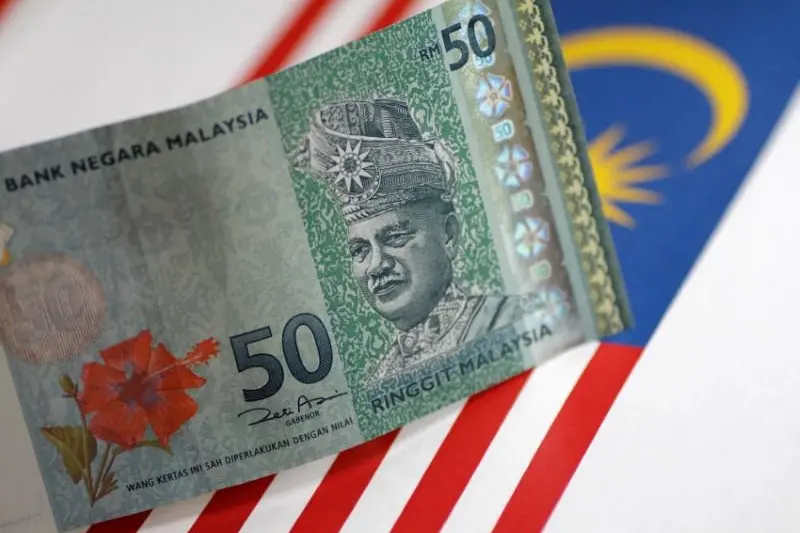PHOTO
Many emerging Asian currencies firmed against a steady dollar on Wednesday, a partial recovery from the previous session's losses on fears of knock-on effects from a China-UStrade war.
Wednesday's trade may reflect market participants' view of China's responses so far as a simple lack of realistic options, given the extent of US-China trade imbalance, Vishnu Varathan, head of economics and strategy for Mizuho Bank, wrote in a note.
"Technically, China does not have $200 billion worth of imports from the United States to dangle as an equivalent threat."
The dollar index against a basket of six major peers gained a meagre 0.05 percent to 95.133.
China's yuan firmed 0.16 percent as the fixing rate set by the central bank was firmer than expected, despite it being its weakest in more than five months.
The CSI300 index fell 0.5 percent to 3,602.71 points at the end of the morning session, while the Shanghai Composite Index lost 0.6 percent. It had fallen by as much as 1.2 percent earlier in the day.
Malaysia's ringgit was 0.1 percent weaker after news that consumer prices rose 1.8 percent in May from a year earlier on higher fuel and transport prices and rising demand for food.
The inflation rate in May was the quickest since January and topped the 1.4 percent recorded in April.
Indonesia's currency market has been closed in the week to date for public holidays, but the central bank said on Tuesday that it was ready to respond to the U.S. Federal Reserve's interest rate increase with another hike of its own to defend the rupiah.
The Singapore dollar and the Taiwan dollar firmed 0.08 percent and 0.03 percent, respectively, while the South Korean won firmed 0.31 percent.
The Indian rupee strengthened 0.50 percent to claw back some of the ground lost in Tuesday's 0.58 percent decline, which left it at its lowest in more than three weeks.
The Reserve Bank of India (RBI) is due to release the minutes of its June policy meeting later on Wednesday.
India's interim finance minister said on Tuesday the government was open to discussing the RBI's demand for greater powers to regulate the country's large but generally underperforming state banks. Indian banks are burdened by 9.5 trillion rupees ($141 billion) of non-performing loans as of last year.
WEDNESDAY'S RATE DECISIONS
The central banks of Thailand and the Philippines are scheduled to hold meetings later in the day to decide monetary policy but the performance of the currencies on the day were starkly divergent.
Thailand's baht firmed 0.28 percent while the Philippine peso slid 0.12 percent and was not far from falling below a 12-year trough touched on Monday.
With no change in Thailand's benchmark rate expected, the baht firmed for the first time this week after losing more than 1 percent in the week to Tuesday's close after comments by the Thai finance minister on Monday hurt the currency.
The minister said that a weaker baht would help the country and that he saw no reason for Thailand to raise interest rates.
Meanwhile, the Philippines faced outflows on Wednesday with the country's benchmark equity index falling as much as 0.6 percent and heading for a fifth straight losing session.
Opinions on the Philippine central bank potentially raising rates are sharply divided, a Reuters poll found, with the weak peso likely to be the deciding factor.
(Reporting by Aaron Saldanha in Bengaluru)
© Reuters News 2018





















